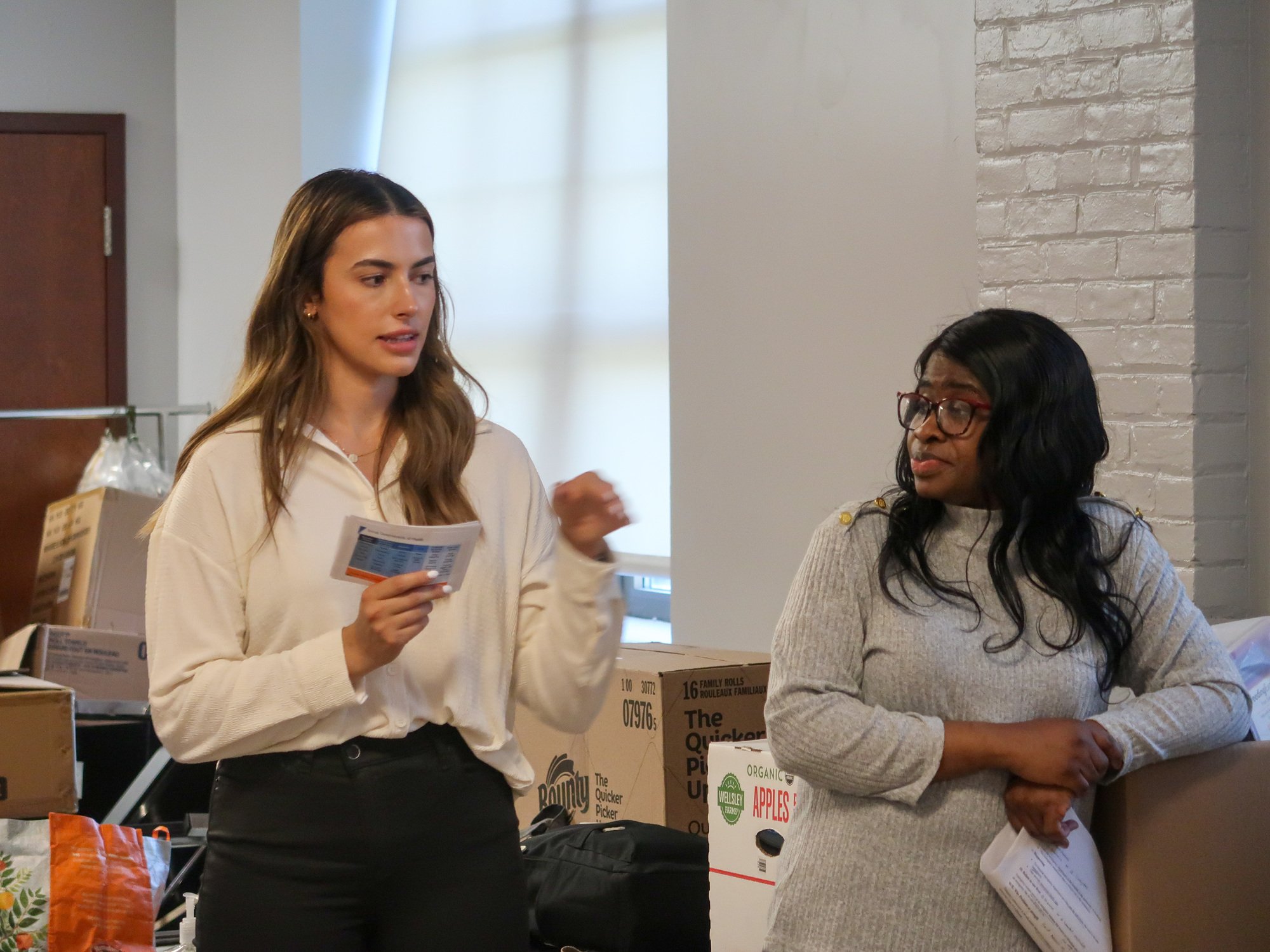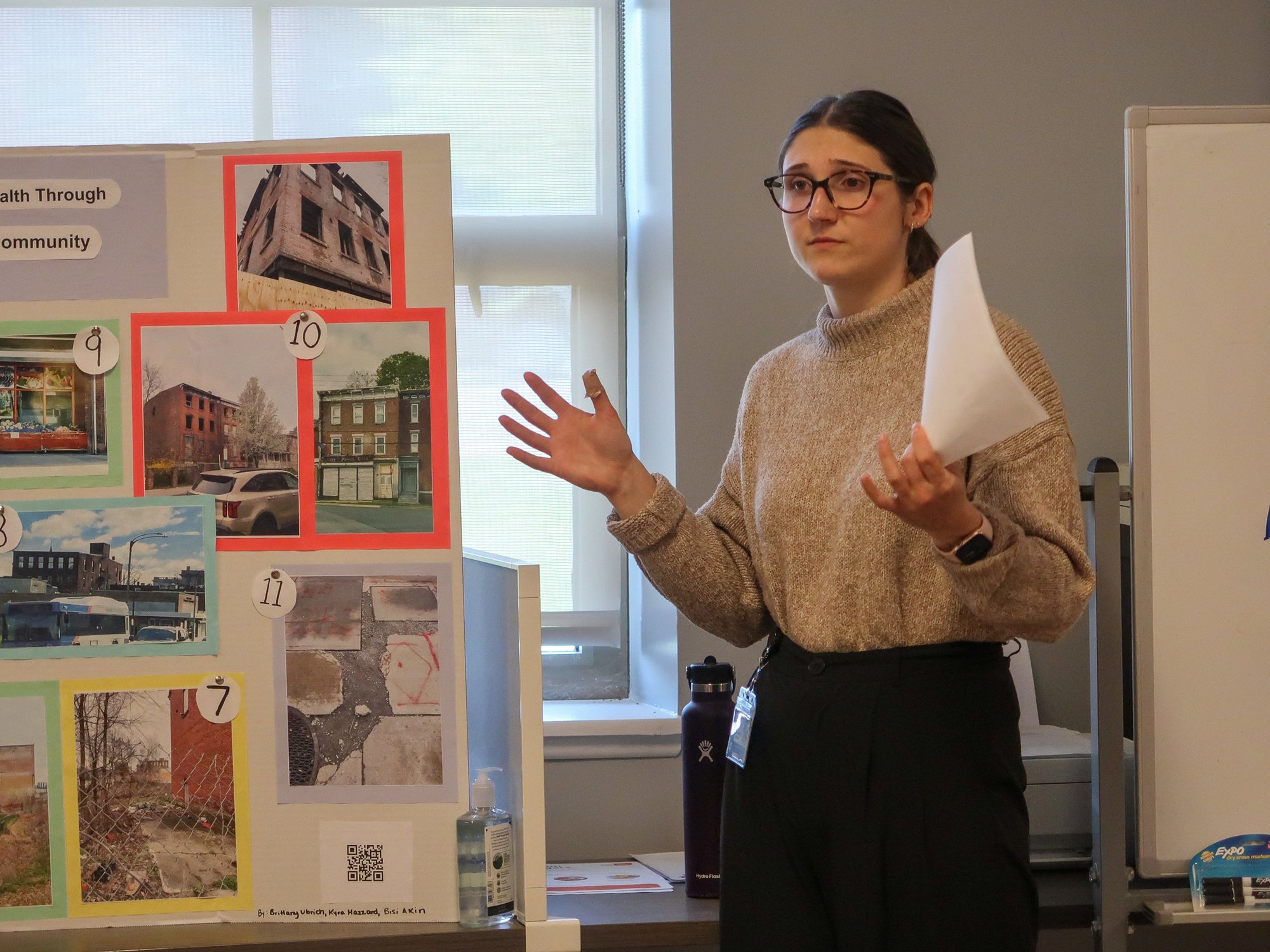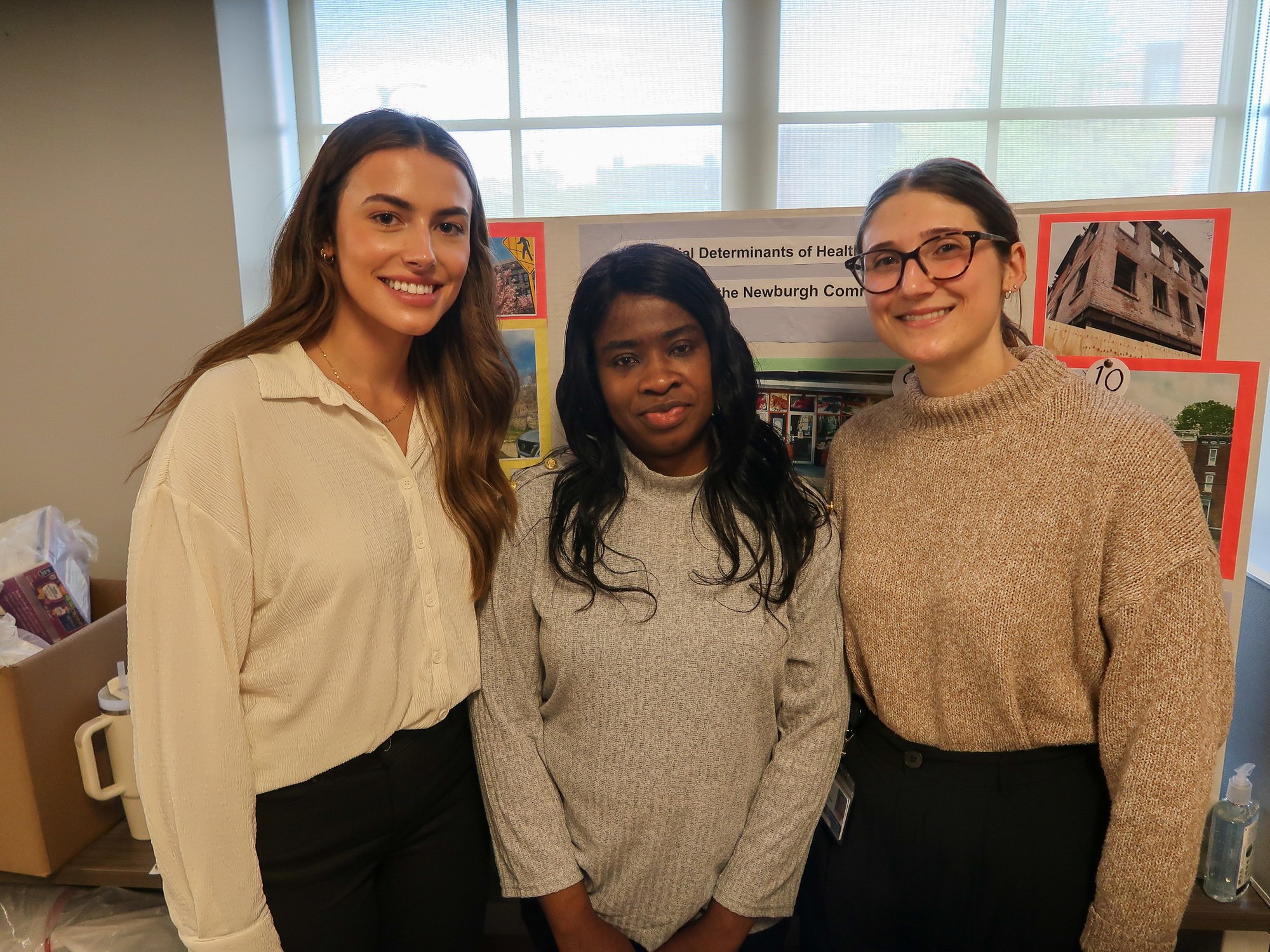Maintaining mental health
A hands-on service experience at Newburgh Ministry




Photos by Matt Frey
The stigma of mental illness is, unfortunately, alive and well. As a nurse and educator teaching mental health in the undergraduate nursing curriculum, one of my major goals has been dispelling the myths of mental illness, as well as making the struggles of those with mental health diagnoses real and impactful. How do you bring client struggles and the realities of their experiences to life in the classroom?
The answer to that question came during the Spring 2024 semester as my students took part in a pilot clinical experience offered at the Newburgh Ministry. Students were able to learn about the problems faced by unhoused clients, but most importantly, the local efforts to make a difference. During this time, we witnessed hope and strength within our community, along with advocacy for those with mental health needs that is demonstrated each and every day at the Newburgh Ministry.
The Newburgh Ministry, a community agency providing services to unhoused individuals from the Newburgh and Orange County area, was the catalyst for this. As with any service-learning experience, the focus is on the agency: “What can we do for you, and what is needed?” Critical service-learning furthers the notion of how we can assist students to recognize or facilitate social change, or make an impact.
The staff and I discussed how the clinical group could assist in meeting the goals of the Ministry, which provided the basis for our clinical objectives. When the time came, the Newburgh Ministry staff welcomed the students with open arms, as did the clients receiving services. During our seven weeks onsite, my students were able to not only achieve the objects set forth by Ministry staff like executive director Colin Jarvis, but also walk away with a newfound understanding of the struggles and successes of those receiving services through the Ministry. Trust was built, stories were shared, and hope was renewed. As my students would come to see, nothing can have a greater impact than the spoken words of a client.
Understanding what it truly means to be homeless, to have a mental health or substance use disorder, and to see and hear the stories of those who live these lives – these experiences cannot be understood or communicated to the fullest extent in a classroom setting. Sharing time with clients, seeing firsthand the environment in which they live, and hearing their spoken testimony cannot be replicated in a lecture. Students were able to learn how clients arrived to receive services at the Newburgh Ministry, but most importantly, how they plan to move forward and regain a sense of independence, health, and stability.
Learning about the expectations of the clients, what they were interested in, and how we could provide health promotion or education was made clear through a focus group at the start of the clinical rotation. From this focus group, we generated ideas on topics of interest. The students then researched these specific health topic areas, and ultimately provided psychoeducation and support to the clients in group settings. The students also met individually with clients and engaged with staff onsite to learn and understand more about the health of the clients they were assisting. The rotation culminated in a group project which utilized the PhotoVoice pedagogy, a learning strategy used in the nursing curriculum to combine community engagement and ethical photography with the purpose of highlighting social change. This project allowed the students to reflect on both negative and positive concepts which impact the clients, while using photos as a symbol of these concepts.
On our last day with the Newburgh Ministry, the students presented their project to the clients. This presentation resulted in a lively and meaningful dialogue between the students and clients. The students correlated their newfound understanding of the difficulties faced by, but also supports available to, the population served by the Newburgh Ministry. In turn, the clients offered their personal perspectives on what helped and hindered their journey. This discussion was enlightening, insightful, and engaging for all involved.
During our time at the Newburgh Ministry, I observed the students’ perspectives shift and their empathy and understanding grow. The idea of seeing the person, not the diagnosis, was realized.
Going into this as a pilot project allowed for us to learn from the experience, tweak what worked and didn’t work, and recognize whether this could be embedded in the nursing clinical experience. Students were able to reflect on the needs of our most vulnerable populations, and recognize the need for social change. They practiced therapeutic communication skills. They taught health promotion and prevention strategies. From a curriculum perspective, it was necessary to evaluate the outcomes of this pilot clinical group and determine if objectives were met. This resulted in a thorough review of student assignments, reflections, and feedback from the Newburgh Ministry staff.
The question to be answered at the end of this experience: Could this clinical rotation be a feasible clinical opportunity for students enrolled in the mental health course? I am happy to say that the Newburgh Ministry welcomes our return, and a new clinical group will begin attending in a few short weeks.
